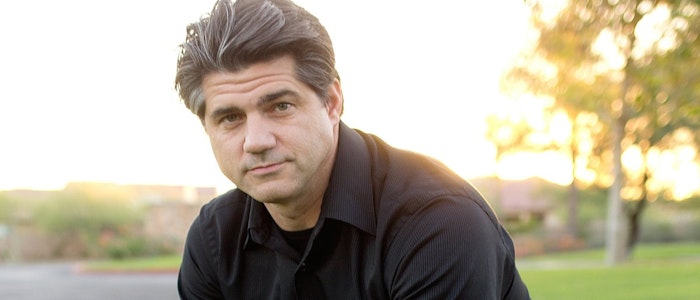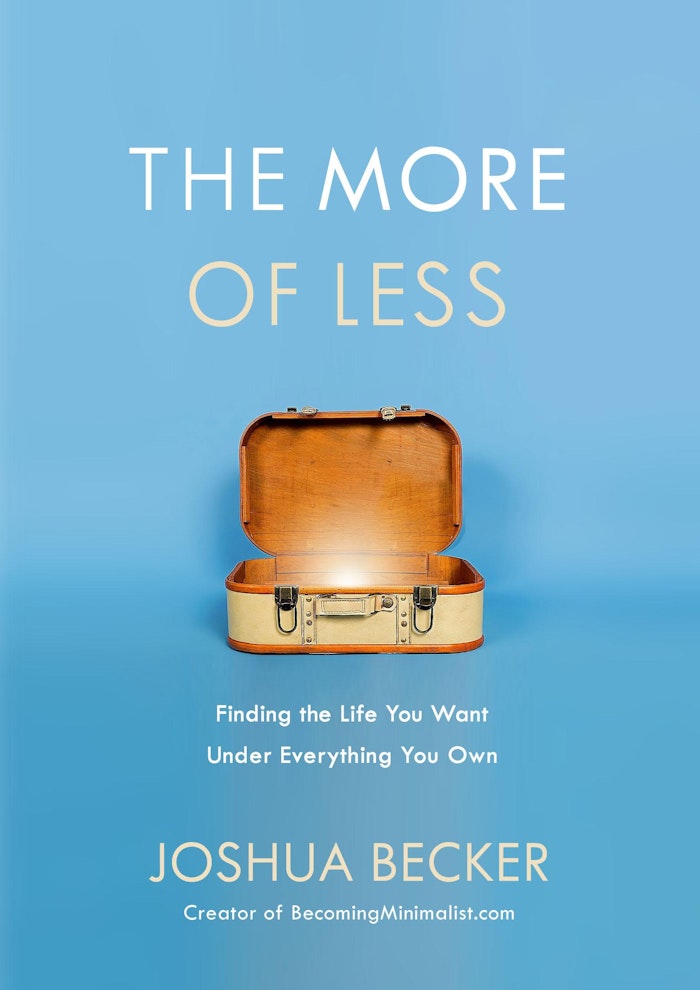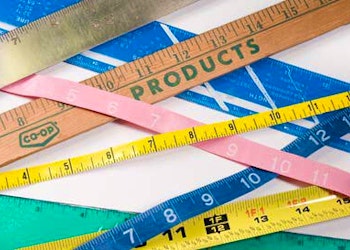

When my parents and I emigrated from the former Soviet Union, we were allowed to bring just two suitcases per person. That's not a lot of stuff.
A few months after we arrived in the US, my father was invited to dinner with some of the people from the company where he was interviewing for a job. My mom and I were also invited. (This freaked both of us out, since our English was still very limited and heavily accented, but mostly we were elated that my dad was maybe getting a job and we'd be getting off welfare.)
The night before the dinner I laid out my outfit options on my bed: Two turtlenecks, one black, one turquoise, and two pairs of pants, one light brown and one turquoise. (Within the limited wardrobe that I had, I was clearly going through a turquoise phase.) After some consideration, which took approximately 30 seconds, I went with the turquoise turtleneck and light brown pants.
This was a little more than 27 years ago.
Earlier this week I was speaking on a panel at a large conference for women in Boston. I do a fair amount of speaking and have a half a closet devoted to my "speaking outfits". The morning before my panel I tried on maybe five different outfits, trying to decide on one that looked professional enough but also relaxed and a bit fun. I was happy with my choice.
But I wasn't happy with having spent a half hour choosing an outfit. The image of Steve Jobs kept popping into my head; he was infamous for wearing the same outfit of a black turtleneck and jeans every single day, so that he wouldn't waste time making decisions about what to wear. Half an hour isn't a horrid waste of time, but still, I could have spent some of that time on something more nourishing, productive, or creative.
My gut tells me that the sweet spot of decisions and stuff lies somewhere between two outfits and half a closet of outfits. What I do know is that every time I reduce the amount of stuff we have in our house, we all feel better, lighter, freer.
I recently read a book by Joshua Becker titled The More of Less: Finding the Life You Want Under Everything You Own. Joshua and I "met" online when we discovered each other's websites -- his is becomingminimalist.com, which reaches 1 million people a month -- and became fans of each other's work.
To be honest, when Joshua sent me his book I decided to read it because he was always so kind towards me and Happier; not because I thought I could learn something new. I grew up in a very small one-bedroom apartment, and perhaps owing to that, generally don't collect a ton of stuff we don't need. So you know, I thought I didn't really need to read a book about living with less.
But I was wrong.
Not only because if I am really honest, then I will admit that we still have more stuff than we need. But mostly because Joshua reminded me to think about living with less as a practice of abundance instead of scarcity, a way to have more of what matters and less of what doesn't.
I asked Joshua to answer a few questions so I could share his perspective with the Happier community and I hope you enjoy reading his answers below.
Nataly: I love the way you talk about minimalism as a way to more rather than less. This quote really spoke to me: "Reducing possessions to a level that sets us free." Tell us a bit more about this perspective on minimalism and its meaning.

Joshua: At its heart, minimalism is about owning less stuff. It's about recognizing physical possessions will never make us happy and that they often distract us from the very things that do.
When we intentionally live with fewer possessions, we experience countless life-giving benefits: more time, more money, more energy, less distraction, less stress, less comparison. Owning less provides us opportunity to pursue our greatest passions. It's about freedom to live the life we want! In this way, minimalism is less about the things you remove and more about the things you add.
Another perspective on minimalism that I loved in your book was the idea that getting rid of things we don't need can help us clarify our purpose and values. How so?
Oh, definitely... and this came totally unexpected to me. I was drawn to minimalism because I had grown weary of all the time and energy and money that was being wasted on the physical things around me. On the surface, I simply wanted to do less cleaning and organizing.
However, as my wife and I moved room by room through our home removing 60-70% of our things, I was struck at how introspective the process became. I was forced to answer some very difficult questions, starting with, "If my life is not going to be focused on the endless pursuit of money and possessions, what is my life going to be about? Where am I going to pursue happiness and fulfillment? And what do I want to accomplish with the one life I've been given?" These are difficult questions without easy answers—but they are important. And minimalism was the catalyst that spurred me on to discover those answers.
I felt your book was both practical and wise, but also, spiritual in a way I didn't expect. I'd never thought about this topic quite that way. Could you share a bit about where your perspective comes from?
Spirituality has always been important to me. And as I mentioned earlier, I found that minimalism was about more than my external possessions, it was about inward motivations as well. The entire journey is a very spiritual one for me.
As I note in the book, it's also interesting to me that almost every respected spiritual leader throughout the course of history has taught on the merits of simplicity. There is benefit to owning less because it provides opportunity for generosity and selfless living—in that way, our simplicity benefits others. But simple living also provides benefit for those who choose to pursue it. It allows our outward behaviors to better align with our inward desires—and I think that is the very heartbeat of spirituality.
What are your three simple tips to get started with practicing minimalism? What could someone do today to start, even if they don't have a lot of time?
My advice is for people to begin with small, easy steps.
1). Clean out one area of your home. A drawer, a closet, a small lived-in area of your home, or your vehicle is a good place to start.
2). Focus on duplicates. Removing the duplicate items in our home is a very stress-free place to begin. You need spatulas to cook, but you don't need 4-5 of them cluttering up your kitchen drawers. Start there.
3). Or, just fill one box. Grab one bag or box and fill it with things in your home that can be easily removed. Most people can fill an entire box pretty quickly. Then drop it off at your donation center as soon as possible. Experience the feeling of helping others and use it for motivation to fill another.
---
We're often tempted to look for joy and peace in new places in our lives and I hope some of Joshua's ideas will inspire you to look for them where you are already. I didn't realize how much joy would be hiding in the tiny storage room in our basement when I decided to clear it out, but it's since become my art and meditation room, where I practice two things that bring me deep joy and peace.

Don't miss your happier boost!
Subscribe to our weekly email to get practical tips and inspiration to help you feel more joyful and resilient.


